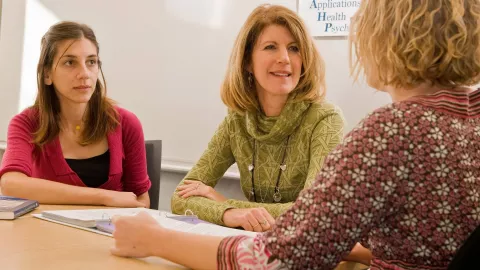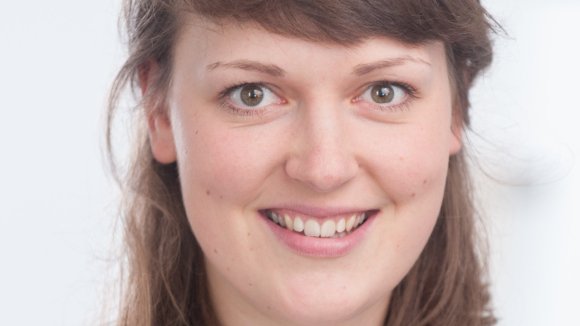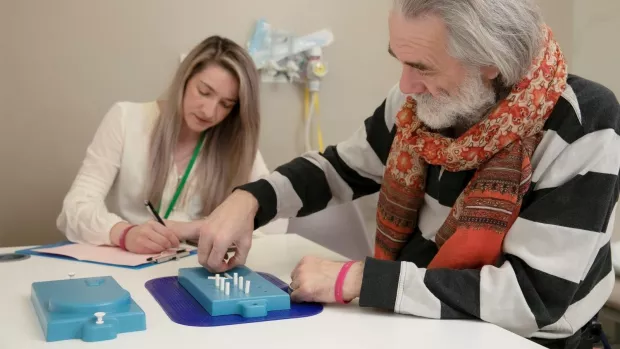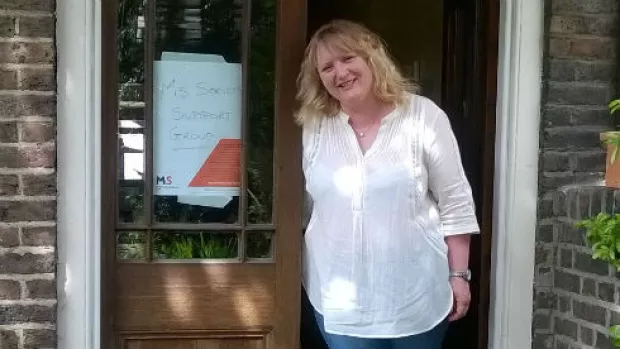
A game-changer for mental health and MS?
We’ve been talking a lot about clinical trials recently. But did you know, clinical trials don’t only test drugs? Dr Katrin Hulme, from King’s College London, tells us about a new trial investigating the effectiveness of COMPASS, a talking therapy programme for people with MS.
This year has been challenging to say the least. But even without COVID-19 to contend with, people with MS often tell us they’re struggling with low mood or anxiety. Here, Katrin explains why she believes COMPASS could be a game-changer for mental health in MS.
So Katrin, what’s the problem you’re trying to solve?
“You may have heard of CBT or cognitive behavioural therapy. It’s a type of talking therapy commonly used to help people who have anxiety or low mood feel better.
At the moment, if you have MS or another long-term physical health condition, it’s very hard to access CBT that takes into account the specific challenges of living with that condition.
People often find they’re ‘ping ponged’ between different services. Your neurologist may not ask about your mental health, and the CBT provider may not have any experience with MS.”
How will your new project help?
“We want COMPASS to fill that gap. Our vision is that if COMPASS is effective at reducing distress, you won’t have to go to a GP or consultant for mental health support. Instead, you can get signposted to COMPASS directly through charities like the MS Society and Shift MS.”
What does COMPASS involve?
“COMPASS has 11 online modules. Each one is linked to a different challenge of living with MS, like managing uncertainty.
There are interactive tasks, stories from people sharing their own experiences, information pages with practical advice, all sorts. And every couple of weeks you get a call from a therapist trained in applying CBT to MS, so you can talk through anything that’s come up during the programme.
It sounds cheesy, but we want to help people appreciate the power of their thoughts. Lots of evidence shows our thoughts, feelings, behaviours and even physical symptoms all interact. If we can better understand that interaction, we’re more likely to be able to change any unhelpful thinking habits we might have and make the most of our positive habits.”

Our vision is that if COMPASS is effective at reducing distress, you won’t have to go to a GP or consultant for mental health support.
What are you trying to find out?
“We want to see if COMPASS reduces distress and help you manage your MS. We will compare COMPASS to the standard support you can access through charities, like the MS Society's MS Helpline. Just like a drug trial, people will be randomly allocated to one of these two groups.
If you’re not allocated to the COMPASS programme, you’ll still receive a PDF summary and wellbeing guide which goes through all the same tools designed for people with MS.”
Who can take part?
“The trial is open to people who are experiencing low mood or anxiety related to their MS. Even if you think COVID-19 is responsible for a lot of your anxiety right now, that’s fine. And you don’t have to have a proper diagnosis of depression or anxiety, but we will go through a short screening questionnaire with you so you can tell us how you’re feeling."


